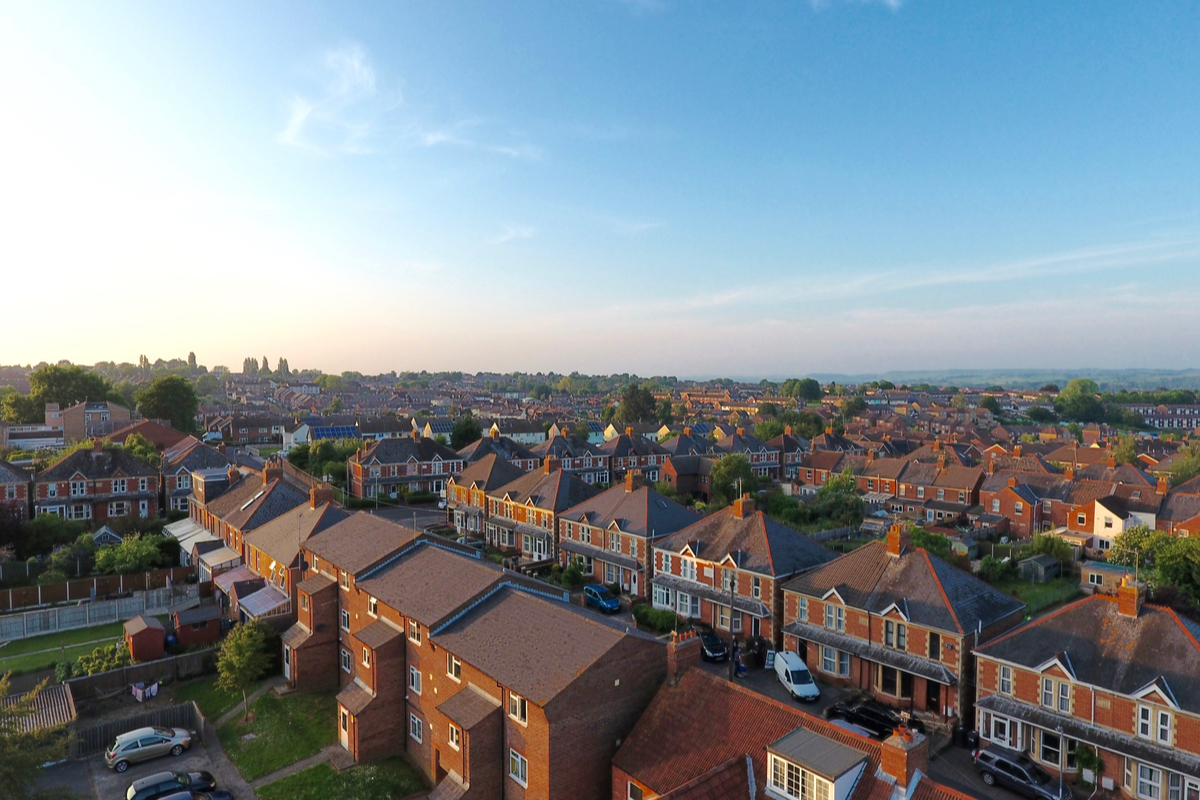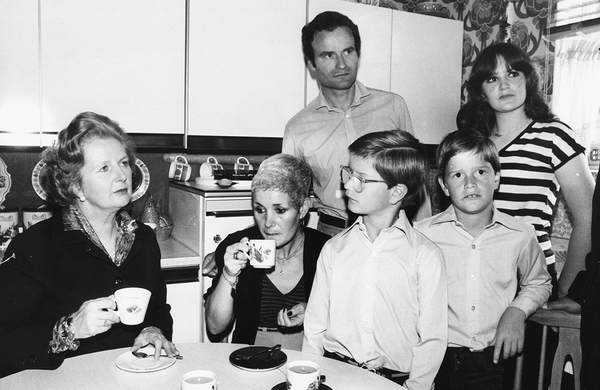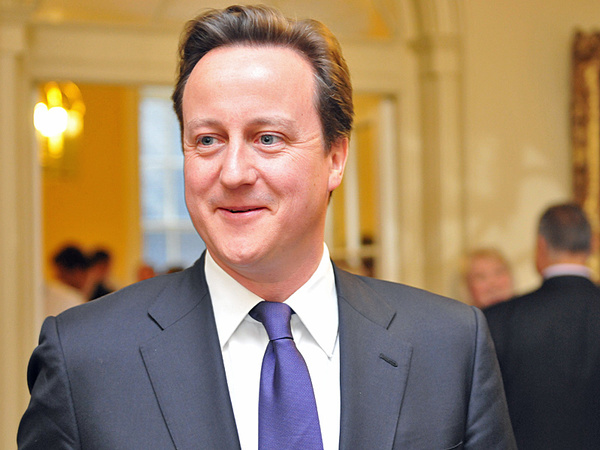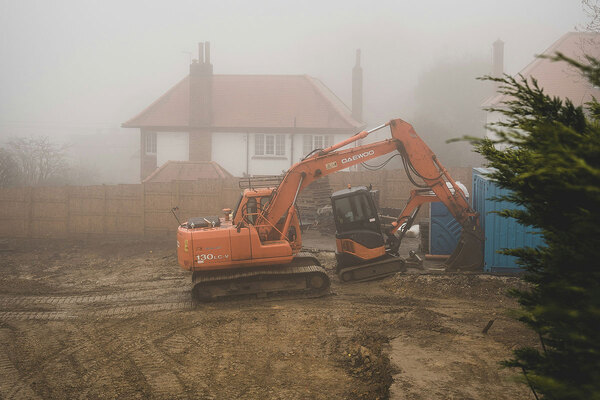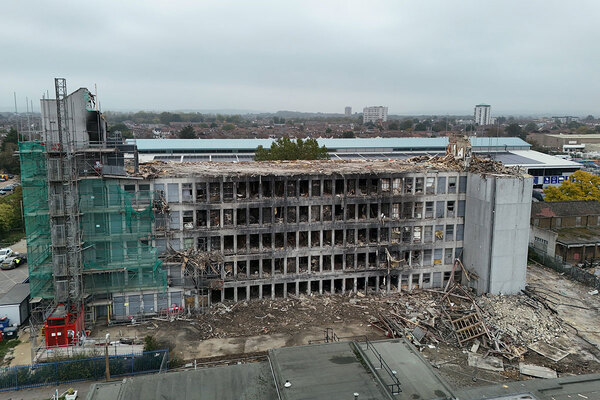You are viewing 1 of your 1 free articles
The zombie housing policies: what has happened to the Right to Buy extension and high-value asset levy?
What has become of the Right to Buy extension and the high-value asset levy? Ahead of Halloween, Pete Apps catches up with housing’s undead policy ideas. Illustration by Chris Malbon
Two-and-a-half years ago, in a different era entirely, the Conservative Party tried to snatch an election victory by promising housing association tenants the right to buy their home.
This policy, which formed the surprise centrepiece of the 2015 election manifesto, was arguably the peak of David Cameron and George Osborne’s Policy Exchange-influenced playbook for reforming social housing. To fund the discounts – £104,900 in London, £78,600 outside – the government would force councils to sell their most valuable units.
After winning a surprise majority, Mr Cameron boldly promised that the policy would be introduced in the first 100 days of his new government. More than 900 days later, Mr Cameron now works as a speaker on the international lecture circuit and housing association tenants are still waiting for their Right to Buy.
With a new leader, new ministers and new policy advisors advocating the building of more social housing, talk about the extension and the associated fire sale of council housing has gone deathly quiet. The policies are no longer showing any real signs of life.
But neither are they quite dead. After an almighty tussle with the House of Lords, both passed into law in April last year. Officially, the government will spend £25m this financial year on a large-scale regional pilot of the Right to Buy extension, and £90m next year.
Some cautious councils up and down the country, beginning to write their budgets for 2018/19, are including an estimated provision for the high-value asset levy.
So what has really become of these zombie housing policies? And can we expect their final demise in the coming months, or are they likely to rise again?
There is an increasing consensus that the high-value sell-off, at least, may never happen. One problem for the government here is that to push the legislation through parliament, ministers were forced to accept a ‘sunrise clause’ from the House of Lords, which means they have to return to both houses for approval over the specific regulations. It has not yet made any suggestion, public or private, that it is ready to do this.
“I picked up at conference that it was becoming unworkable,” says Labour frontbench peer Lord Roy Kennedy. “There has been no sign yet they are ready to come back with specific regulations.”
Even should they do so, passing them will be no easy feat. Since the Housing and Planning Act passed, the government has lost its majority in the House of Commons. Even though this legislation falls under the English Votes for English Laws provision, it would only take a relatively small rebellion for an embarrassing and damaging defeat.
“I don’t expect anything to come in the next financial year,” says John Bibby, chief executive of the Association of Retained Council Housing. “We took a straw poll of our members at a recent event, and about half of them are budgeting for it and half aren’t. We haven’t heard anything definitive from government, but I would be very surprised if they said it was coming in for 2018/19.”
“There has been less conviction about the Right to Buy than previously.”
Several housing association chief executives also tell Inside Housing they believe the policy has been axed.
One long-standing hurdle is the difficulty calculating a formula for the sales. A flat formula – such as the top 5% in each borough – would not raise enough cash to fund the £4.5bn annual bill. The government would need to force a high volume of sales in high-value areas of London.
But it is a fairly open secret that the councils in these areas – including Conservative-led boroughs such as Kensington and Chelsea, Wandsworth and Westminster – hate the policy and have pushed back hard against it.
“There is no way the central London boroughs would accept a formula that deprived them of the majority of their social housing,” says a source who has worked closely with at least one of these town halls. “That opposition has been quite effective. ‘Blue on blue’ lobbying is often the most effective kind.”
Then there is the question of whether the government still has the political will to push this policy through against these barriers. While Theresa May now talks of “building a new generation of council housing”, the 25,000 new social rented homes she plans to build by 2021 would be dwarfed in a year by sales if the policy went ahead in full.
There are signs the policy is indeed dead. Senior housing figures say they have had no meetings with Department for Communities and Local Government (DCLG) officials on the issue since the Brexit vote. Emma Fraser, the civil servant understood to have been heading it up, left the DCLG for the Treasury in August 2016 and is not thought to have been replaced.
What councils do need, though, is clarity. “People are starting to make their 2018/19 budgets around now, for sign off in February,” says Mr Bibby. “They need to know what is happening with this policy.”
If the high-value asset levy has indeed been given a stake through the heart, what of the Right to Buy?
This one would be far more politically damaging to scrap. Visit Twitter and click on any tweet by the housing minister in recent months and there are a string of replies by housing association tenants angrily and fruitlessly demanding updates on the Right to Buy.
In last year’s Autumn Budget the chancellor announced a large-scale regional pilot, which was due to begin in April. Housing leaders were then briefed that this would be in the West Midlands.
But so far, despite the money set aside, nothing has happened. “We have had the impression there has been less conviction about the Right to Buy than previously,” says one prominent West Midlands chief executive. “It has kind of felt like ‘we will tell you more in due time’.” Others have said they have assumed it is not happening any more.
"If the government chooses not to go ahead with the high-value asset levy, as some have suggested, it needs to find about £4.5bn to pay for Right to Buy tenant discounts from elsewhere"
The Budget next month will be instructive on this point. The government’s books for 2018/19 assume £90m of spending on the Right to Buy pilot, with a total of £250m committed through to 2021. With renewed pressure to act on the housing crisis, it will be interesting to see whether this spending remains allocated to the pilot.
Beyond this point, the question is more open. If the government chooses not to go ahead with the high-value asset levy, as some have suggested, it needs to find about £4.5bn to pay for the compensation to housing associations for tenant discounts from elsewhere. In the new political climate, this is unlikely to be how it would choose to spend this money.
In its general election manifesto, the Conservative Party did not expressly drop the Right to Buy, but it was cautious. It promised “to support those struggling to buy or rent a home, including those living in a home owned by a housing association”.
Support to buy a home could be interpreted to mean a variety of things, such as the ownership products being developed by housing associations such as Home Group. The pledge itself is some way short of the 2015 manifesto, which said: “We will extend the Right to Buy to tenants in housing associations… It is unfair that they should miss out on a right enjoyed by tenants in local authority homes.”
So far, though, the government is keeping its cards close to its chest. “There are issues that need looking at, I accept that,” said Sajid Javid at the recent National Housing Federation conference. “We’ll be making a decision on the way forward just as soon as we possibly can.”
Until then, these once-flagship Tory policies will continue to stalk the night of the housing policy landscape – neither dead, nor alive.


